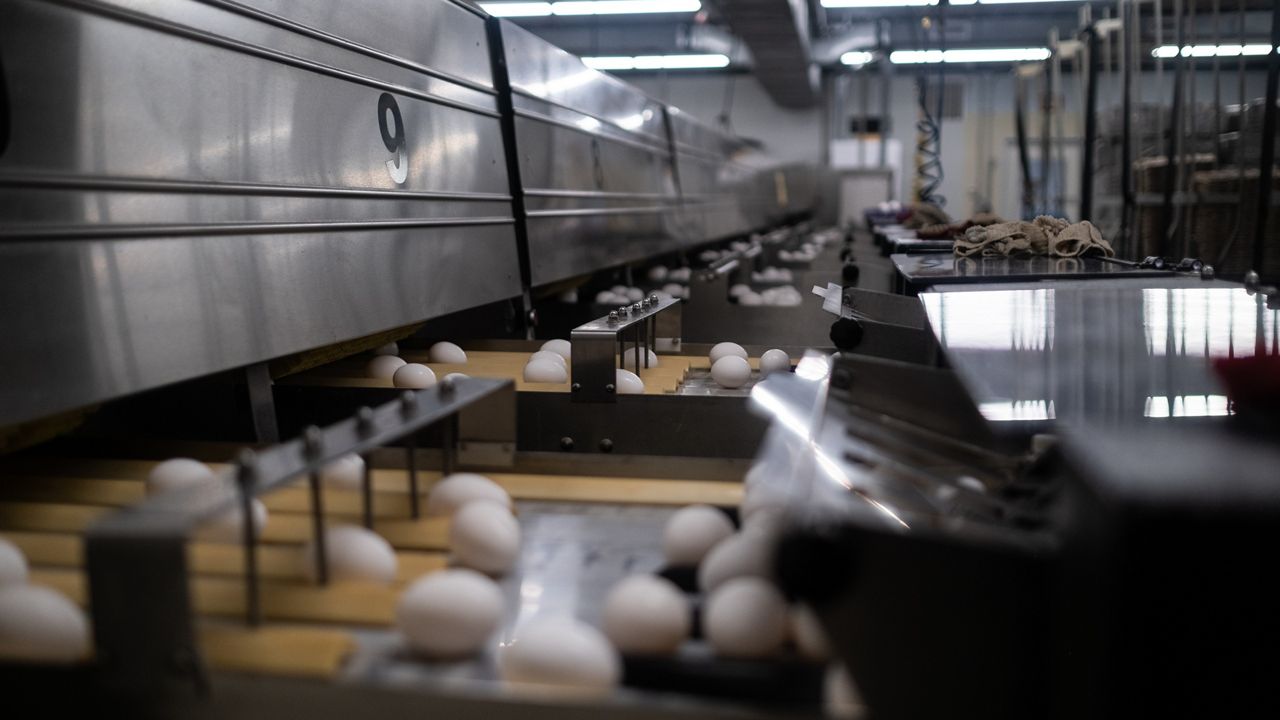Christina Hudson Kohler has been working at her family egg farm, Hudson Egg Farms, for the last eight years although the farm started long before that.
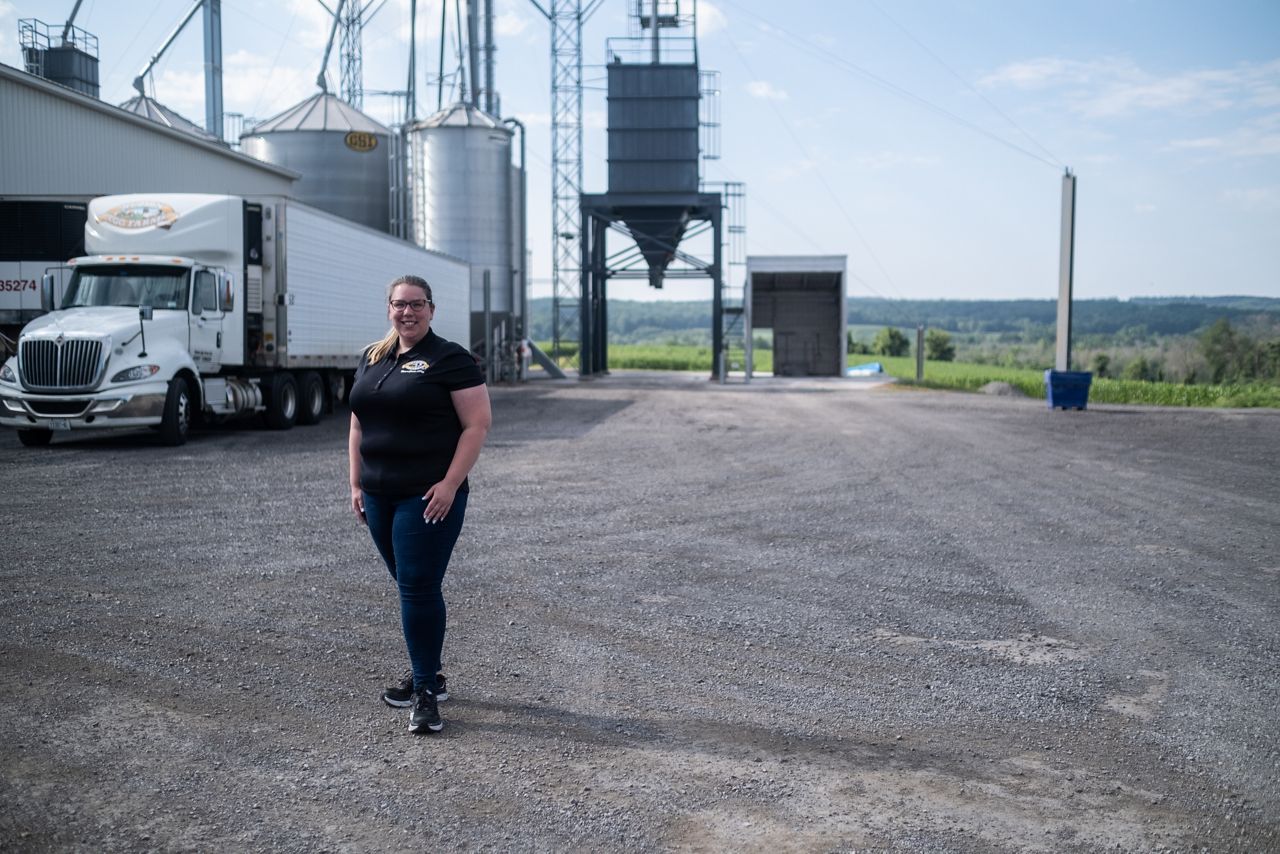
The original farm was started by Christina’s great-grandfather and his four sons as Manorcrest farms located in Camillus. The current location in Elbridge was started in the late 1980s by Christina’s father, Lee, and his brothers, Peter and Earl. Christina’s cousin, Chris, has since become a partner and now the farm is run by Christina, Chris, Lee and Christina’s mother assists as an accountant and HR manager. Christina’s brother also helps out on the farm which operates on 500 acres of land.
On an average day, Hudson Egg Farms produces and packages about 20,000 dozen eggs. They have 250,000 laying hens that each lay one egg every 26 hours.
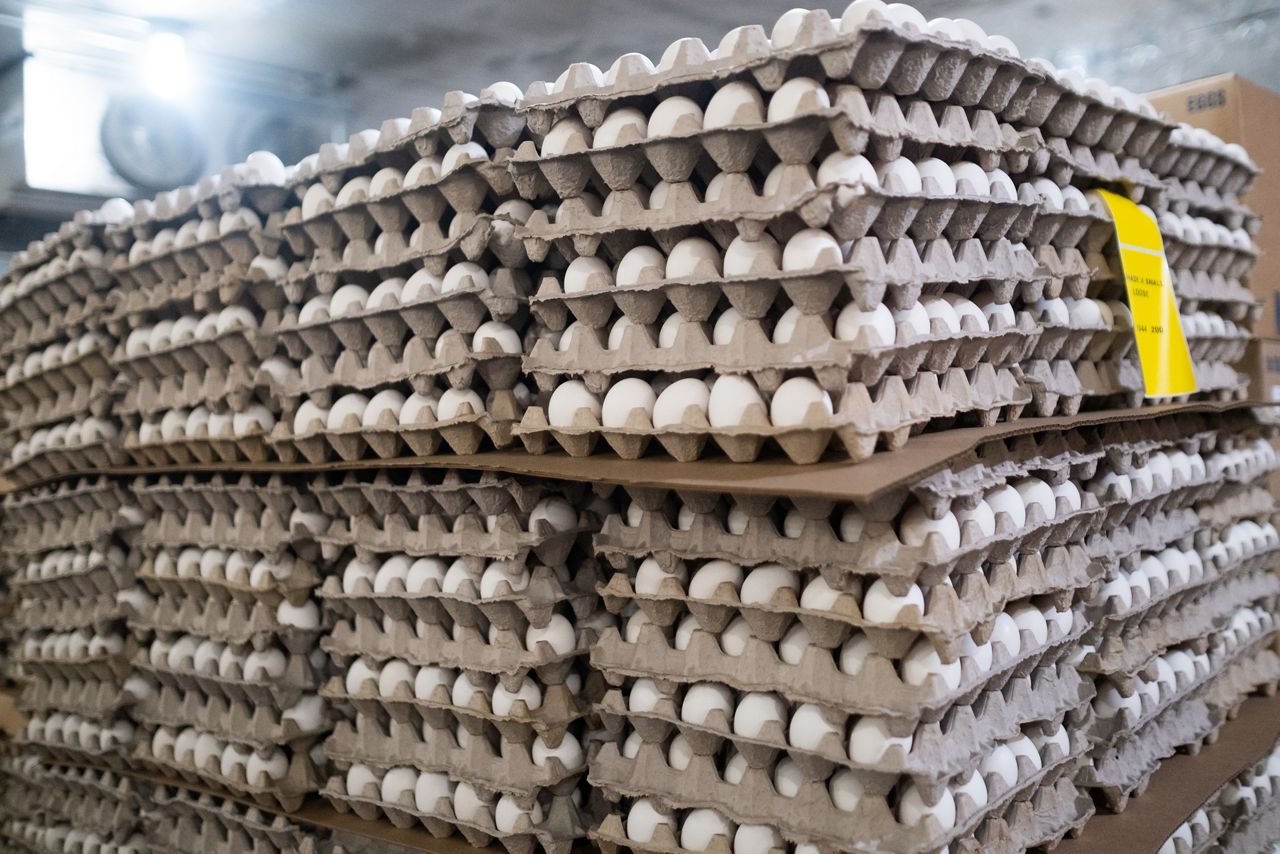
The process of how consumers get their eggs begins in the barn.
“So the chicken lays the egg and it comes down through a series of conveyor belts and elevators to the egg processing room where it gets washed, dried, and handled,” said Christina Hudson Kohler. “There's technology that looks for dirty eggs, cracks, imperfections, and then they get weighed and sorted out by size and that determines anywhere from wee peewee all the way up to a super jumbo.”
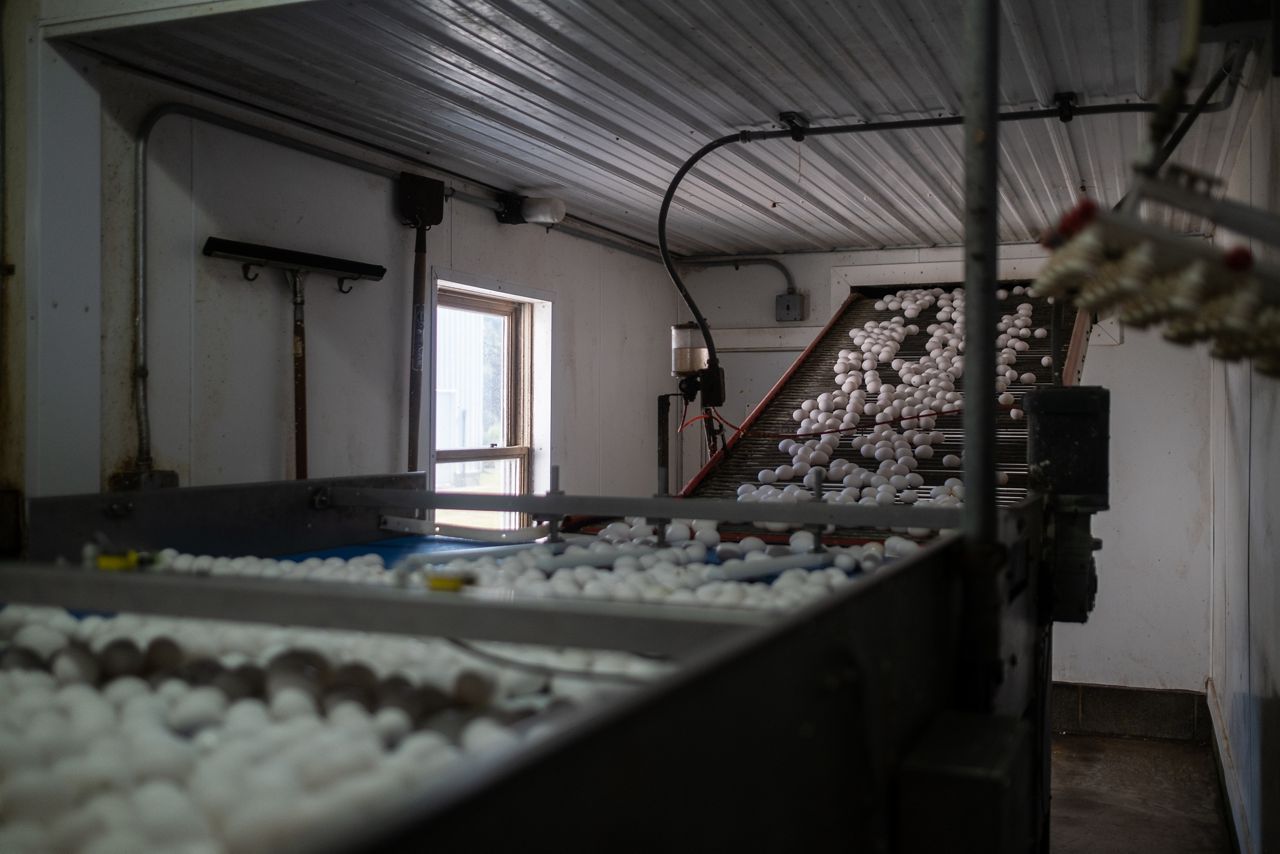
Young chickens who are just learning to lay typically lay very small eggs which are then sent to a facility in New Hampshire to make egg whites. Additionally, eggs that are cracked are sent to the same facility to be made into liquid eggs. Their packaged eggs go to stores such as Green Hills, Tops, Byrne Dairy, and local restaurants. They also send their eggs outside of the Central New York region.
Often when talking about where eggs come from, or looking around the store at the different brands, you see the term “cage-free.” Hudson Kohler explained what that term means:
“The difference is in a cage-free facility, they're still inside in a barn, but they're walking around. Obviously they all have access to water, food, and where they go to the bathroom but they're able to walk around, so that's the difference.“
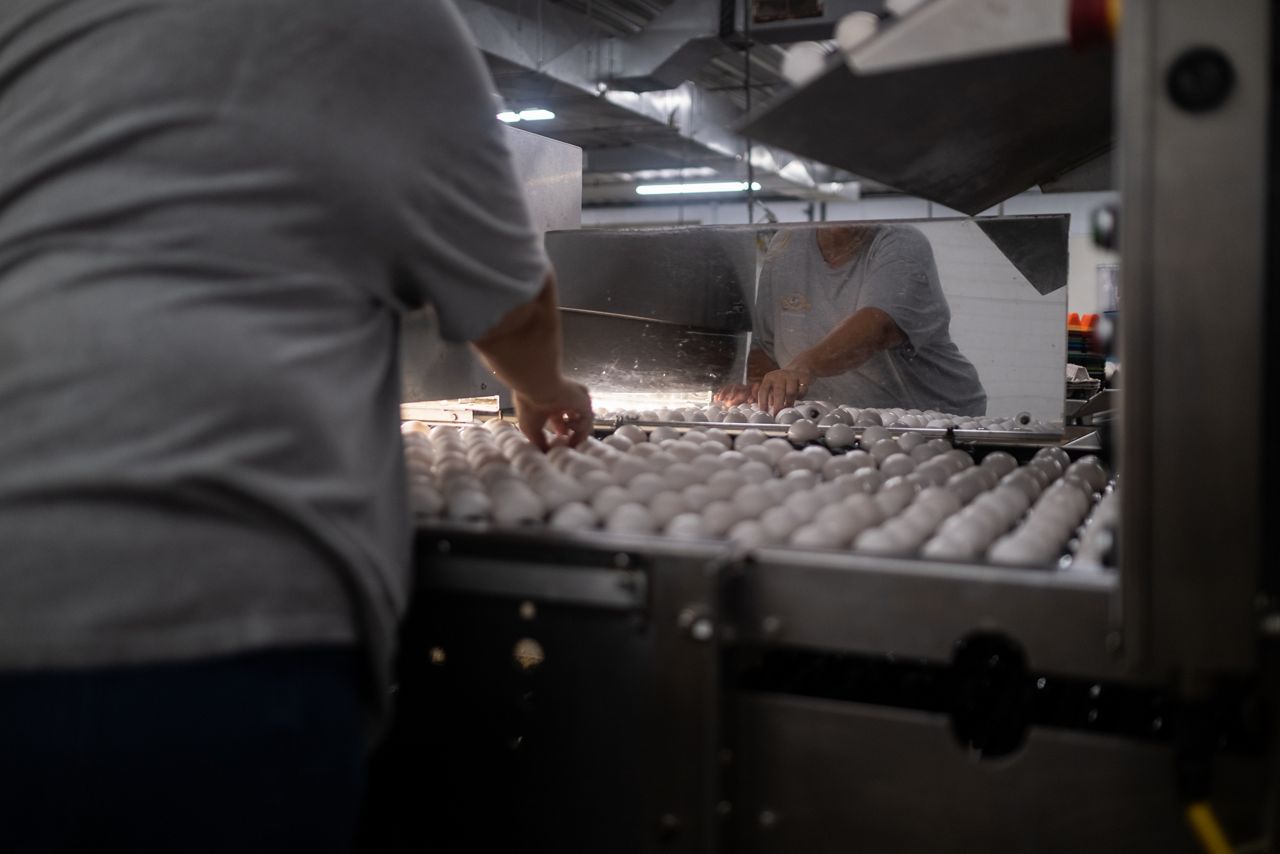
Hudson Egg Farms uses an enriched cage system which gives the chickens room to walk around but they are kept up off the ground in cages which Christina mentioned helps keep them safe if they are scared during a storm. In a cage free facility, the chickens can become frightened and all crowd to one corner of the barn.
According to the USDA, over 40 million birds in the United States have been affected by avian influenza since February 2022 so many farmers only keep their chickens in covered areas such as barns as the disease comes from wild birds. Additionally, it protects chickens from getting attacked by things such as foxes, coyotes or, hawks. Hudson Kohler is thankful they have not been affected by avian influenza.
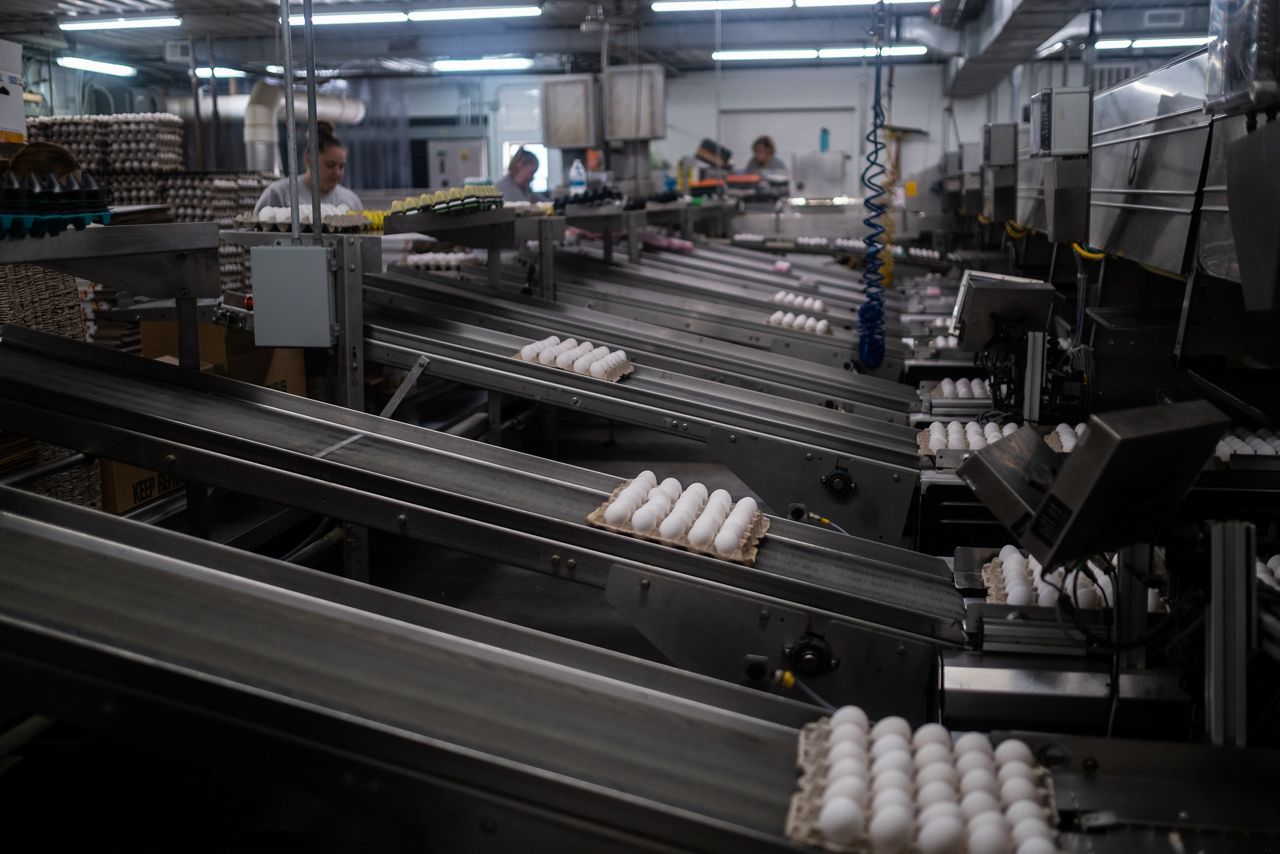
Many farmers have been moving to techniques that are more environmentally friendly so Christina talks about how they do their part at Hudson Egg Farms.
“One thing that makes us unique is we have a wastewater treatment plant on site. We are the only egg farm in New York state that has a wastewater treatment plant, to my knowledge,” said Hudson Kohler, “and so we take that egg wash water, and we separate out the shells and the yolks, and anything that might have made it that far, and then the water is cleaned and that byproduct is compostable and so then it's one step away from clean drinking water before it's returned out to the environment, so that's one really cool thing.”
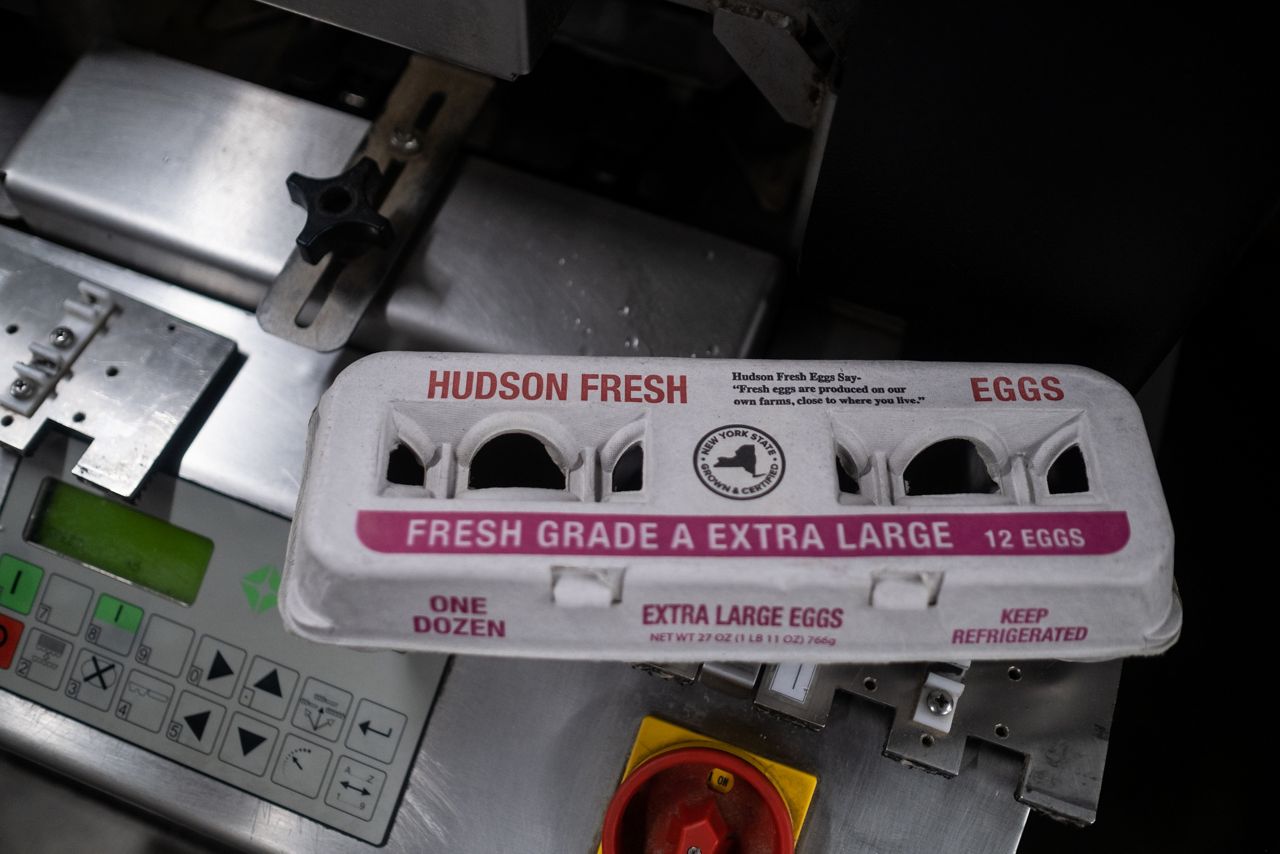
Additionally, the manure from their chickens is composted, dried, and used by organic farmers as fertilizer. Hudson Egg Farms also purchases ingredients for their feed from local farmers too. Hudson Kohler said since the pandemic, supplies have increased in price such as their egg cartons, fuel and fertilizer, so helping out other farmers is important to them.
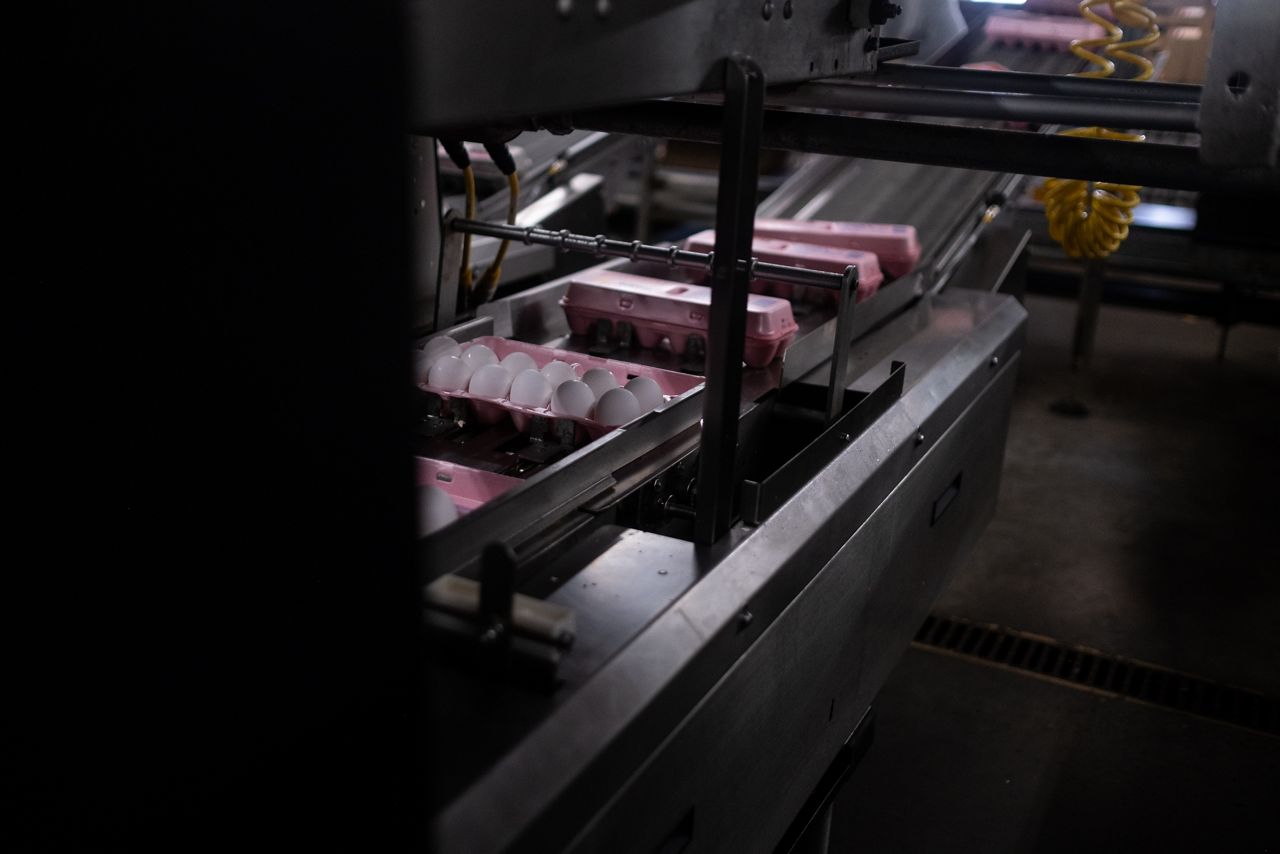
“The most important thing about buying local is you get to know your farmer and you get to know your food,” said Hudson Kohler, “A lot of memories are made around food, so it's great to know that our eggs are being used to bake cookies or breakfast or actually any meal because eggs have such a wide variety of uses.”



